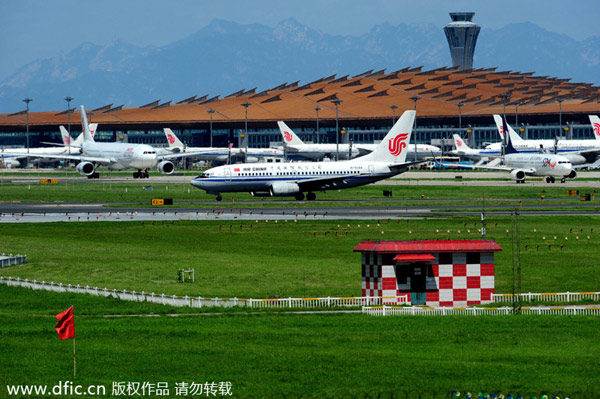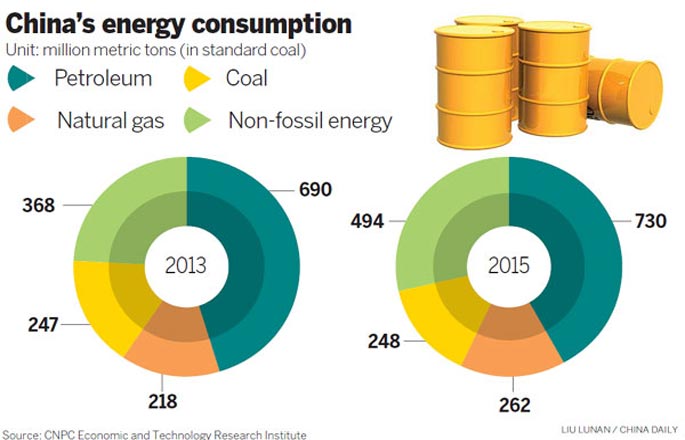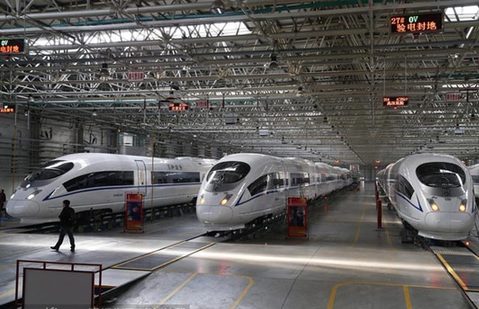Airports take off as commercial hubs
By John D. Kasarda (China Daily) Updated: 2015-02-16 08:17
 |
|
Airplanes of Air China are pictured at the Beijing International Airport in Beijing, China, Nov 19, 2013. [Photo / IC] |
Many Chinese cities sinking in construction debt due to excessive infrastructure investment
Today's major airports have moved beyond 20th century centers of mass transit to also become 21st century strategic business infrastructure. In the process, they are attracting nearly all commercial activities traditionally found in metropolitan downtowns.
This has transformed many from what were once "city airports" into urban economic entities in their own right - airport cities. Becoming powerful business magnets, some airport areas now rival metropolitan centers in industry mix and regional economic dominance.
International airports are particularly vital to globally oriented, time-sensitive firms - those high-value businesses that depend on fast and efficient long-distance transport of everything and everyone from smartphones, biomeds, and sushi-grade tuna to corporate executives, investment bankers and professional sales staff. Airports are also essential to cities and provinces seeking to modernize their economies, boost exports and draw foreign tourists.
China's leaders understand this. The country's central, provincial and municipal governments are aggressively constructing, expanding and upgrading airports to compete globally and attract business while improving aeronautical efficiencies and passenger experiences. According to the Civil Aviation Administration of China and aeronautical consulting firm Avia-Tek, at least 85 civil airports either will be formally planned, newly constructed, or substantially expanded from 2015 to 2020.
Approximately 280 billion yuan ($44.8 billion) is being invested in China's civil airports annually. At this rate, it can be expected that about 1.5 trillion yuan will be spent on the country's airport development during the next five years. Such investments will range from 250 million yuan for Huizhou Airport in Guangdong province to 80 billion yuan for the Beijing Capital Second Airport at Daxing.
Airports are being built on an artificial island in Dalian, Liaoning province, and flattened mountaintops in Hechi, the Guangxi Zhuang autonomous region, and Shennongjia, Hubei province, and in the far reaches of the Inner Mongolia and Tibet autonomous regions. In many cases, new airport projects receive considerable funding from the central government. In others, municipalities are taking on the financial burden of airport construction, typically accruing huge debt in the process.
- Airports take off as commercial hubs
- China's fitness market on the fast track
- Big companies muscle in on booming fitness sector
- New chapter for bookstores in China
- Brand new world for 'Made-in-China'
- China's theme parks on the ride of their lives
- Kuaidi marries Didi: End of the battle or a new beginning?
- Top 10 innovative consumer electronics companies
















